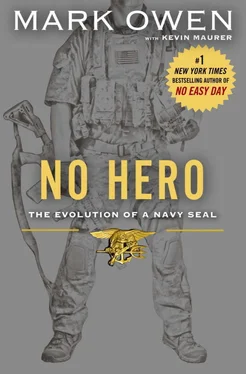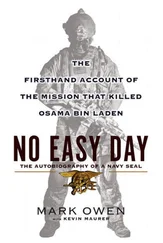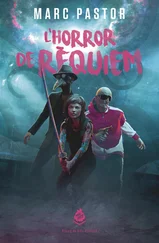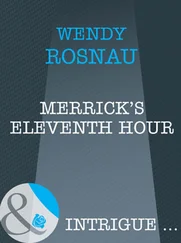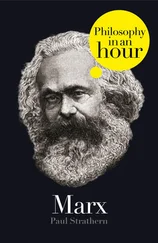My father was always fair and never pushed me to do anything beyond what he knew I could accomplish. So when he asked me to at least try one year of college before enlisting in the Navy, I had to honor his wish. He was part of the Vietnam generation and didn’t want anything to happen to me, but I think he also understood my passion to serve because he’d felt the same passion for his missionary work.
So we made a deal.
After high school graduation, I enrolled at a small college in Southern California and made a commitment to stay for at least a year. But I didn’t plan on being there a day longer than that. After the first year, I planned to enlist and go to BUD/S.
My first year flew by, and my father was right. College was fun. Experiencing life outside of the village was actually pretty cool. My grade point average wasn’t setting any records, but I was having a great time and making new friends. I’d promised him one year, but I decided to stick it out and finish my degree.
My school didn’t have a Navy Reserve Officers’ Training Corps (ROTC) program, and the surrounding programs didn’t have a partnership agreement. The Army program at Cal State Fullerton did accept students from neighboring schools, so I signed up.
ROTC is a college-based program for training officers. Students take military science courses, work out, and drill together. Once a week typically, ROTC students wear uniforms to school. I’d take classes at my school during the day, and then drive across town for events and military science classes at Cal State. My goal wasn’t to become an officer or join the Army. I just wanted to be involved in something military. I liked wearing the uniform; it gave me a sense of pride.
After my freshman year, the ROTC instructors asked if I wanted to go to the United States Army Airborne School at Fort Benning, Georgia. I’d excelled in my first semester, and they figured this carrot would not only keep me in the program, but also convince me to take a scholarship and be a future Army officer.
I accepted the chance to go to jump school, which is what most people call the airborne training program. I’d read enough books to know the SEALs sent guys straight from BUD/S to get airborne qualified. I figured this was a chance to knock out the three-week school early. Before I left, I got a short haircut like the rest of my classmates.
The first morning, we got up at dawn and lined up in formation on the parade field near our barracks. The sun was just peeking over the pine trees, and the air was already humid and sticky. By the second exercise, my gray Army T-shirt was soaked.
Everyone looked the same—gray shirts, black shorts, high-and-tight haircuts—except for a small group of guys who had longer hair and brown T-shirts. When I saw the group in their uniforms after physical training, I noticed they had U.S. Navy name tapes over their left pockets. I knew they had to be SEALs.
The SEALs stuck together during training. I watched as the instructors corrected a SEAL and ordered him to do ten push-ups as punishment. As soon as the SEAL started, his buddies hit the floor too. In unison, they called out the reps. “One, two, three…” No one approached them, even though I desperately wanted to pick their brains about BUD/S.
If I’m being honest, I wanted to be them.
During the second week of training, I finally got to talk with one of the SEALs. It was lunch and the only seat open was across from me. We didn’t talk at first, except for a nod. I was too intimidated to initiate a conversation. But after a few bites of his lunch, the SEAL finally spoke.
“Hey, bro, can I ask you a question?” he asked.
Unlike the SEAL I met in Washington, this one was skinnier, with shorter hair. He was lean and had an air of confidence, not arrogance.
“Sure,” I said.
It was kind of exciting to finally be talking to one of the SEALs. In the back of my head, I wanted to be the one asking questions. I had so many, especially since I knew he’d just finished training. But while I saw my future, the SEAL just saw another cadet playing Army for three weeks.
“What is up with the haircuts?” the SEAL said. “I just don’t get it. Why do you have that haircut?”
I stopped eating.
I couldn’t believe this question was directed to me. The question wasn’t asked to be mean or mocking. It felt like he was really curious, which made it worse. If he’d mocked me, I’d at least have been justified in being mad.
“I don’t know, man,” I said. “I really don’t know.”
I quickly tried to change the subject to BUD/S. I really didn’t want to be talking about something I didn’t truly understand. And I felt uncomfortable, embarrassed really.
Before the end of the conversation, I made up my mind. I was done with the Army. I went back to California and turned in my uniforms and boots, no longer shined to a high gloss. My high-and-tight haircut was starting to grow out.
As I finished up the paperwork, one of the officers at the unit stopped me.
“Hey, man, are you sure you want to leave?” the officer said. “We need good cadets and would hate to see you go.”
“I just can’t do this,” I finally said.
The instructor tried to reason with me.
“You’re a great cadet,” he said. “We only send the top cadets to jump school.”
I appreciated the compliment, but I didn’t want to be in the Army.
“I want to be a SEAL,” I said. “It has been my dream since I was a kid.”
I knew I was taking a risk. By leaving ROTC, I was giving up the chance of a scholarship. But it was worth it, and I think sometimes you can achieve a goal only if you are willing to risk it all. Take my parents moving out to Alaska, far from family and any support, to achieve their goals. This was no longer some idea I had because I thought it was cool. It had become the beacon that was driving my life decisions.
I’m confident many of the guys who became my teammates were the same. We all wanted to be part of something bigger. I’d veered off my path and lost focus on what I really wanted.
When I finally signed my Navy enlistment contract, I had to pick an “A” school, which was basically deciding which job I’d perform if I washed out of BUD/S and didn’t become a SEAL. The recruiter wanted me to go into nuclear power, or “nuke,” to work on the reactors that propelled the subs and aircraft carriers. The school took eighteen months. I knew recruiters probably got a bonus for putting people in the toughest programs, but I didn’t want to wait that long to start BUD/S.
“What is the shortest school available?” I asked the recruiter.
He flipped through his files and found a chart with details on all the schools. Running his finger down the list, he stopped and looked up at me.
“Torpedoman. Seven weeks,” the recruiter said, resigned to the fact he wasn’t going to get me to go nuke and boost his numbers.
Instead, I’d be waxing torpedoes for a couple months before hopefully getting a chance to go to BUD/S. I didn’t spend a lot of time thinking about what would happen if I washed out. Four years as a torpedoman would have driven me crazy, and maybe out of the Navy altogether. For me at that time, there was no backup plan.
I set my goals higher than most people thought were possible for a kid from Alaska, but I knew in my guts that I’d make it or die trying. I didn’t want to be an old man and regret not trying.
There was some comfort in finally working toward my ultimate goal of becoming a SEAL. I’d learned sacrifice from my parents. They showed me what it meant to live for something bigger than myself. I got off track when I signed up for ROTC. It took that lunch at jump school to push me back on track. When I looked in the mirror, I saw someone with the drive and discipline to make it happen. I saw someone with a purpose. I just needed a chance to prove I was up to it. I knew nothing in my life would feel right unless I at least gave it my best shot.
Читать дальше
